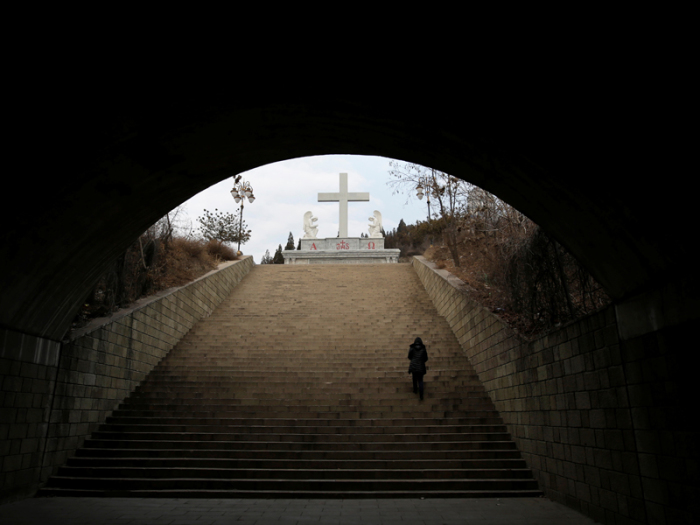Chinese house church fears more persecution as 2 preachers remain in jail for 'defrauding' through tithes

The Covenant House Church in Shanxi province in northeast China has requested prayers for its congregation as authorities are preparing to resume their investigation into a fabricated case that resulted in the imprisonment of two of its pastors and a church member.
The case, which alleges that preachers Li Jie and Han Xiaodong and a church member Wang Qiang had “defrauded” congregants through tithings and offerings, has been sent back to the Bureau of Public Security for further investigation, the U.S.-based group China Aid reported this week, citing the church’s prayer request.
The resumption of the investigation will allow the police to continue their persecution of church members, said the group, which monitors human rights violations in China.
The two preachers were arrested last August during an outdoor family camp and placed in residential surveillance, the group said, adding that officials coerced false confessions from some church members, leading to the arrest of a third man, Wang Qiang.
All three were subsequently charged with “fraud” based on purportedly false testimonies.
Wang Qiang’s wife, Wen Huijuan, who gave birth to a boy a fortnight ago, questioned the false charges against her husband in a social media post. He was accused of “fraud” for giving tithes and offering to the church, she wrote.
Han Xiaodong’s wife, Chen Ying, also wrote a letter to her imprisoned husband on Jan. 12, encouraging him to remain steadfast in faith and to share God’s story with those around him.
“I have recalled all our stories recently. I realized that God called both you and me. I see God’s amazing grace in our marriage and life; God’s plan will continue. I have experienced the marvelousness of dancing with the Spirit,” she wrote. “Honey, you always reminded me that people should not put the lamp under a basket. I didn’t get it before, but people living near us all care about us and are curious about us after the incident so that we can share our stories and God’s story with them.”
The targeting of the house church started after Li Jie signed a joint statement by hundreds of Chinese pastors and leaders in 2018 declaring their faith.
Linfen Covenant House Church is one of many house churches in China that face ongoing persecution for not joining the state-sanctioned Three-Self Patriotic Movement.
Christians in China have come under even greater pressure to demonstrate unswerving allegiance to Premier Xi Jinping by rejecting the Christian faith, according to a recent report by the United Kingdom-based aid and advocacy organization Release International.
A growing number of Evangelicals are being targeted and arrested on charges of being cults, corruption or illegal religious activity.
"The government under Xi Jinping wants to control everything. They see Christianity as not fully under their control," says Release International's local partner in that country, explaining that Christianity is depicted as unpatriotic, outdated and Western in origin.
China only recognizes five religious groups that submit to the government's influence.
Christians from unregistered churches, including the heavily persecuted Early Rain Covenant Church, have also been taken in by authorities for questioning.
China is ranked No. 16 on Open Doors 2023 World Watch List of the countries where it’s most difficult to be a Christian.
Open Doors also warned in its latest report that the China model is being emulated by a growing number of countries.
“China is trying not just to dominate the international agenda, but also to re-interpret existing (and coining new) human rights. China is trying to push this revisionism into the mainstream of international diplomacy, partly by attempting to re-define the tasks of the United Nations — and, most importantly, by filtering who is allowed to participate in debates on how human rights should be shaped in the future,” says the report.
“Countries as diverse as Sri Lanka, Myanmar and Malaysia have headed down this authoritarian path, joining such Central Asian states as Azerbaijan, Kazakhstan, Kyrgyzstan, Tajikistan, Turkmenistan, Uzbekistan and, of course, Russia.”




























